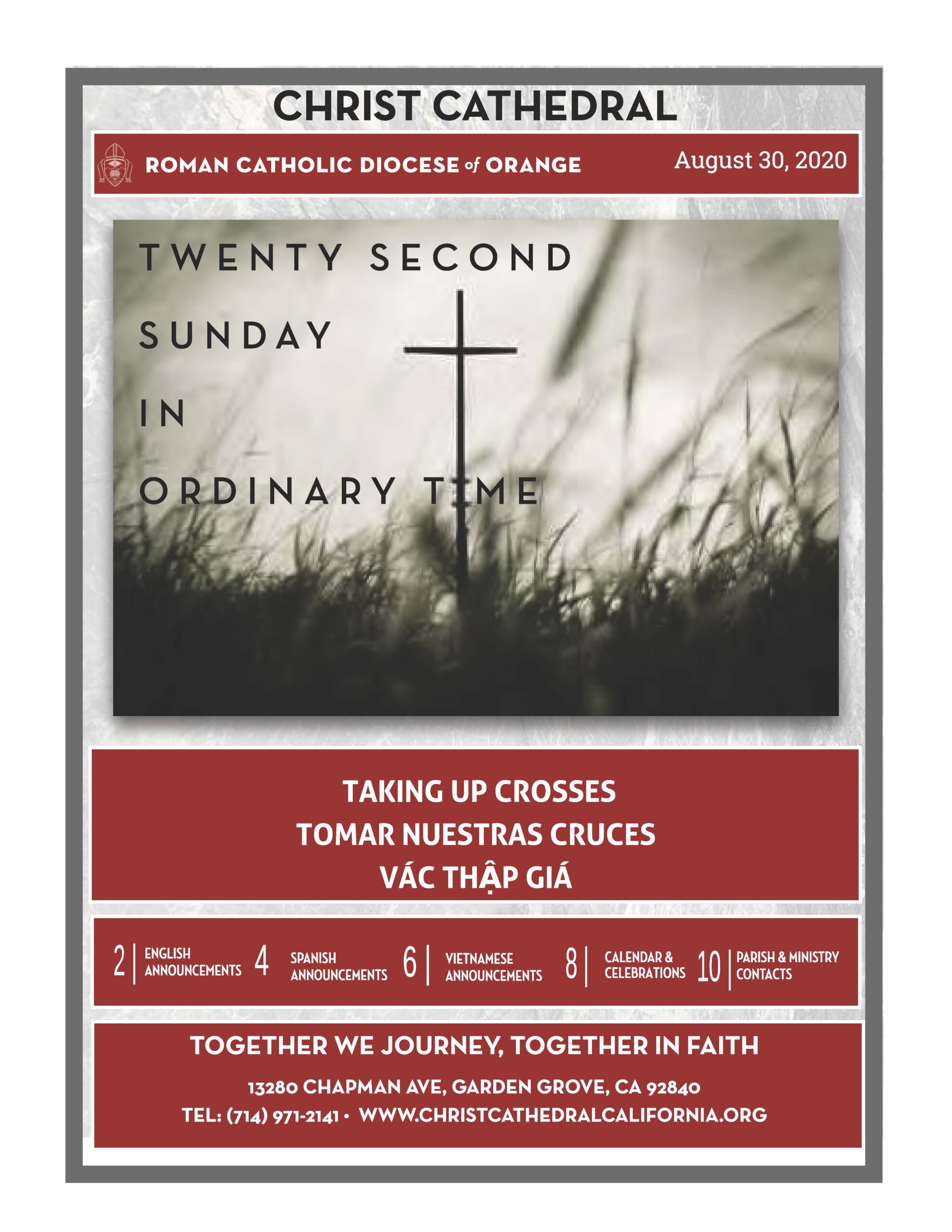When Jesus says we are to take up the cross (Matthew 16:21-27), we often think of the cross in terms of personal suffering. The personal affliction of an illness or some kind of problem. The painful consequences of the current pandemic. The struggle of dealing with difficult people. A traumatic event such as a car accident, losing a job or the sudden death of someone we love. These occurrences personally challenge us and affect our lives. They are our personal crosses.
Taking up the cross means a willingness to face personal challenges with the confidence that Jesus is with us. However, this is not the whole picture. Taking up the cross is also about doing what is right. The right thing for Jesus was to do the will of his Father who wanted him to give his life out of love for us. Likewise, the right thing for us to do is to give of ourselves for the well-being of others.
With this in mind, promoting the dignity of the human person and protecting the sanctity of human life can be understood as a cross we are called to take up. Another cross is defending the rights and dignity of those who are mistreated, misjudged, discriminated against and marginalized. There is also the cross of enduring the criticism and disdain of others who disagree with such actions on our part. Another cross is generously sharing from our substance and not just what is extra. Taking seriously the Church’s mandate to have a preferential option for the poor is a cross because it presents us with the difficult task of asking how our daily decisions and actions are affecting those who have the least. Our willingness to be engaged in concerns beyond our personal lives for the well-being of others greatly expands our radius of care. As challenging as that is, our lives and our world will be better for it.
Jesus did not direct his disciples to take up the cross based on some wild chance that something good might come from it. He said it because he knew that taking up our crosses, both the personal ones and the social ones always point to the victory of the resurrection. This means taking up the cross will always result in something life-giving and new. For most of us, there is no shortage of personal crosses. The picture is complete when we add the social crosses of our actions to promote the well-being of others. Now that is a victorious combination!
Together in faith,
Very Rev. Christopher H. Smith, Rector
